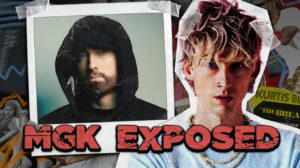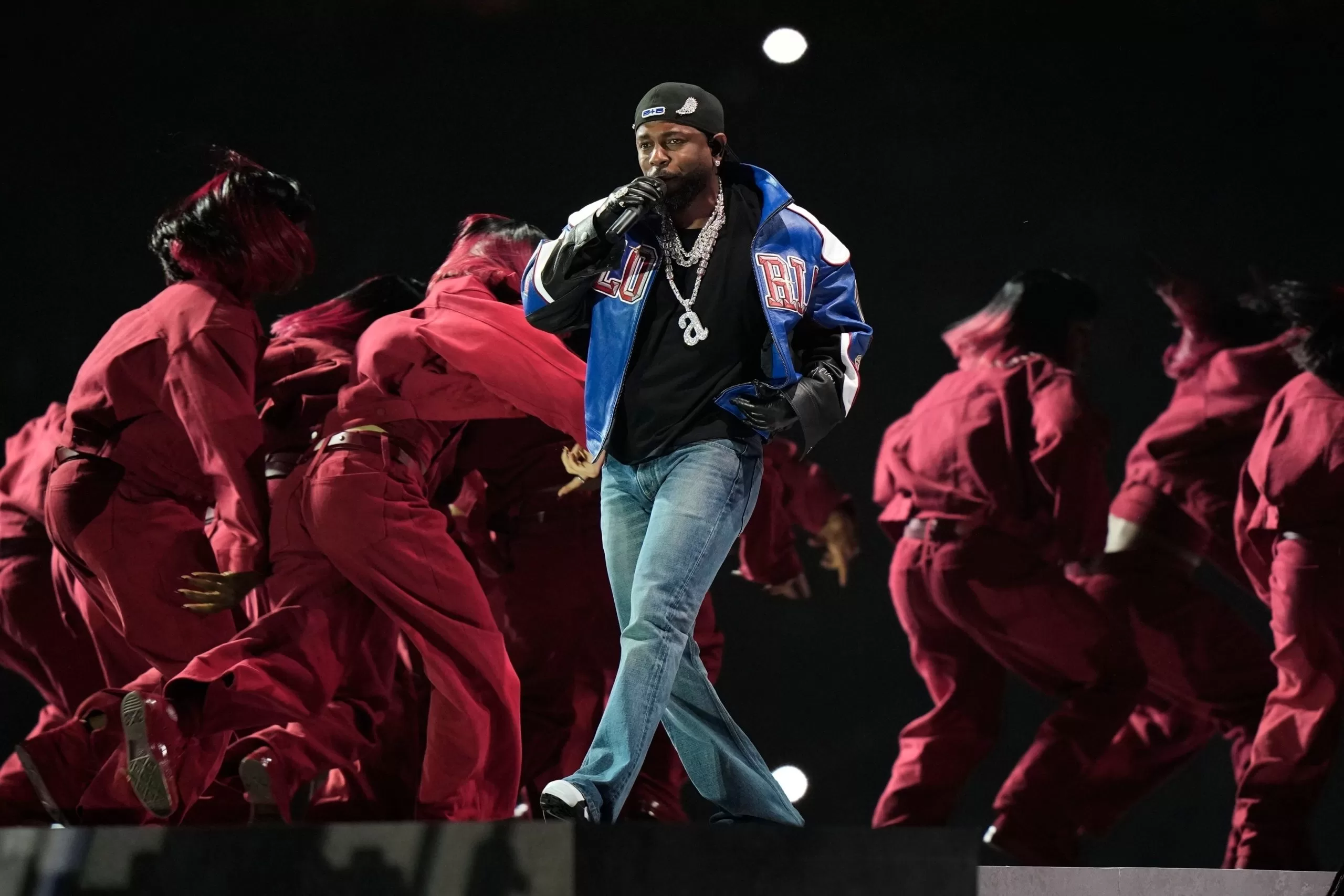
From childhood trauma to Disney voice work, Metallica’s frontman defies every metal stereotype imaginable.
James Hetfield stands as more than Metallica’s thunderous voice. Behind those crushing riffs lies a man of unexpected depth and contradictions. You think you know the Master of Puppets? These revelations span from childhood trauma to beekeeping obsessions, proving that metal’s most recognizable frontman contains multitudes that would surprise even longtime fans.
23. Absent Father Shaped Everything
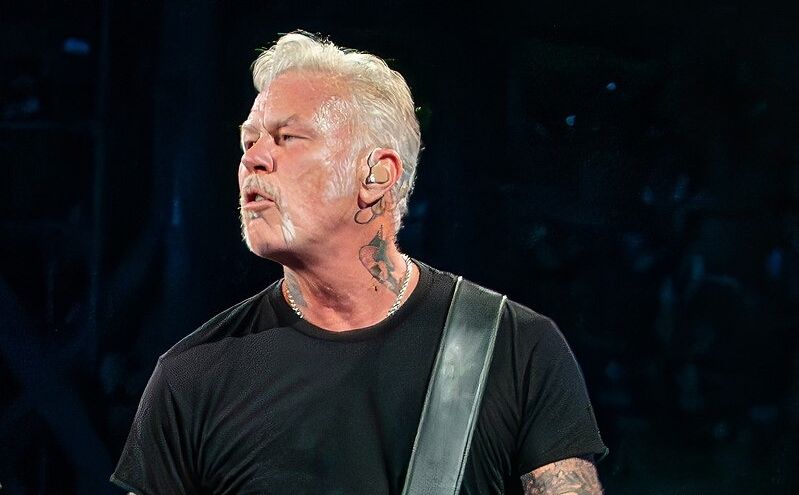
Virgil Hetfield vanished when James turned 13, leaving wounds that echo through every Metallica album. His mother Cynthia, a light opera singer and devout Christian Scientist, forbade medical treatment even as cancer consumed her.
Imagine a teenager watching faith kill the person he loved most. These early betrayals by both parent and religion forged the lyrical darkness that makes “The God That Failed” hit like a sledgehammer to the soul.
22. Piano Before Power Chords

Your metal god started with classical piano at age 9. Those early lessons in melody and structure became the foundation for Metallica’s most haunting ballads. He dabbled with drums briefly before discovering his true weapon at 14.
Those piano fundamentals explain why Metallica’s heaviest songs still carry unexpected melodic sophistication. The classical training never left – it just learned to growl through Marshall stacks.
21. A Classified Ad Changed Music History

Lars Ulrich’s 1981 Recycler ad seeking bandmates seems impossibly quaint now. Hetfield’s response to that simple classified created one of metal’s most powerful partnerships. Dave Mustaine joined initially but got booted for Kirk Hammett in 1983.
That newspaper connection launched 125 million album sales and redefined heavy music. Sometimes the most revolutionary moments start with the most ordinary actions.
20. Montreal Pyro Nightmare
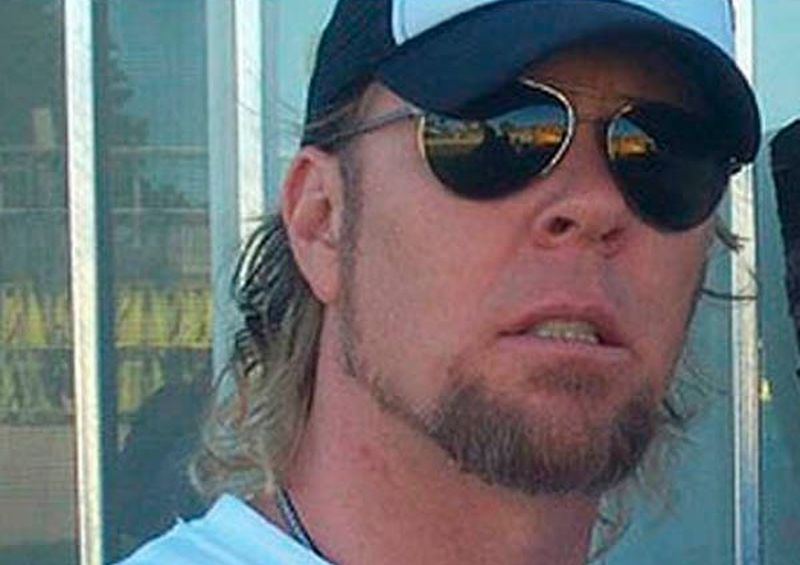
August 8, 1992: Hetfield stepped into a pyrotechnic blast during “Fade to Black” at Montreal’s Olympic Stadium. Second and third-degree burns covered his body, shocking 50,000 fans into silence.
He returned to singing after just 17 days, proving that Metallica’s reputation for toughness isn’t marketing hype. The scars became part of his tattoo collection – turning trauma into permanent art.
19. Skateboarding Ban in His Contract

Multiple broken arms from skateboarding forced Q Prime Management to act. They literally banned Hetfield from skating during tours, protecting their multi-million-dollar investment from his rebellious hobby.
The irony cuts deep: a rock star grounded by his own management. But when your guitar playing funds an entire industry, some sacrifices become business necessities rather than artistic choices.
18. Stage Fright Behind the Swagger

Hetfield suffers from glossophobia despite commanding stadiums with supernatural confidence. That larger-than-life stage presence masks genuine anxiety that would cripple lesser performers.
He transforms fear into fuel, channeling vulnerability into the raw power that makes Metallica shows feel like religious experiences. Sometimes the biggest stages hide the smallest personal spaces.
17. Disney Voice Acting Surprise

Hetfield voiced dragons in Disney’s “Dave the Barbarian” and Wolf Gang in “Skylanders Academy.” His gravelly growl brought unexpected charm to children’s animation, proving versatility beyond thrash metal vocals.
These roles showcase range that Hollywood never fully explored. His voice adapts naturally to character work, suggesting untapped potential in entertainment beyond music.
16. Hollywood Roles He Refused
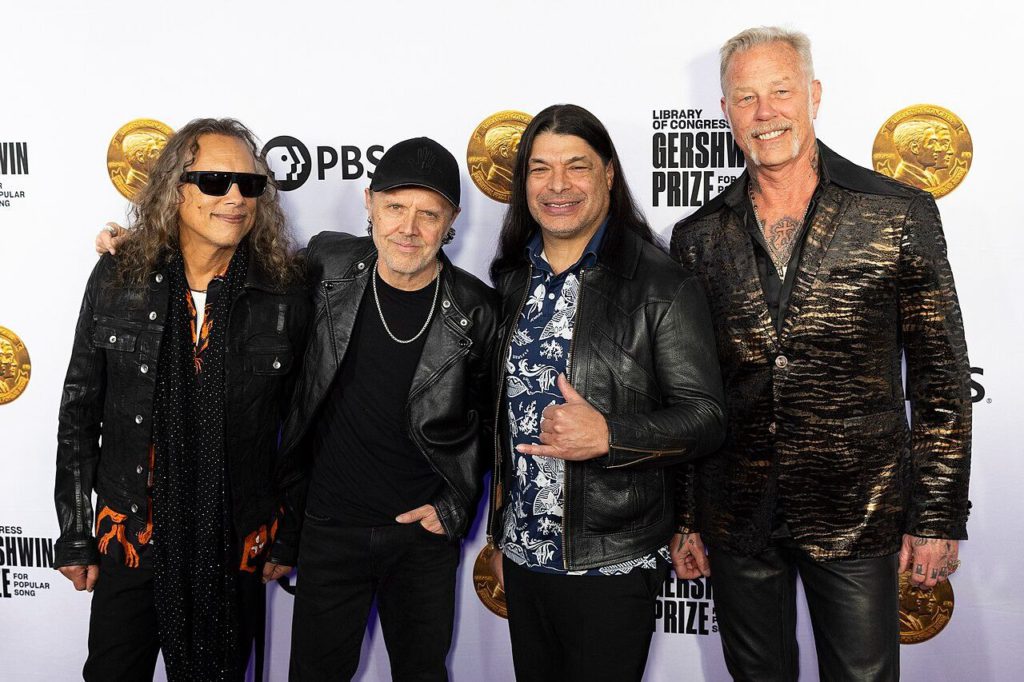
Hetfield has consistently prioritized Metallica over acting opportunities throughout his career. His recent roles in “Extremely Wicked” and “The Thicket” represent careful selections that complement rather than compete with his musical identity.
His commitment to music over fame explains Metallica’s longevity. While other rockers chased acting careers, Hetfield built a legacy that outlasts most blockbuster franchises.
15. Sobriety Clause Protection

Following addiction struggles, Metallica’s contracts now include sobriety requirements during tours. His 2001 rehab was documented in “Some Kind of Monster,” showing vulnerability that humanized metal’s toughest frontman.
The clause protects both Hetfield and Metallica’s future. His ongoing recovery journey inspires fans facing similar demons while ensuring the band’s survival.
14. Classic Car Obsession

Hetfield’s 1936 Auburn Speedster won the 2010 Good Guys award, cementing his reputation as a serious gearhead. His annual car shows feature 300+ vehicles while raising money for local charities.
The craftsmanship parallels his musical precision. Both require patience, attention to detail, and respect for tradition – qualities that separate masters from pretenders.
13. Western Film Fanatic

Hetfield considers “The Good, the Bad and the Ugly” essential viewing, drawing inspiration from Clint Eastwood’s quiet strength. Those spaghetti western heroes influenced his stage persona and storytelling approach…. The connection makes perfect sense: both cowboys and metal gods rely on minimal words and maximum impact. Eastwood’s cool intensity translates perfectly to Hetfield’s commanding presence.
12. Visual Artist Beyond Music

Hetfield sketched the concept for the haunting “Master of Puppets” cover, which artist Don Brautigam transformed into the iconic painting. His contributions to album artwork and stage designs shape Metallica’s complete aesthetic experience.
His visual sense strengthens the band’s impact across multiple mediums. Great metal requires both sonic and visual power – Hetfield delivers both with equal intensity.
11. Comic Book Escape

Despite his intense public image, Hetfield finds solace in Marvel comics and animated humor. Friends remember his laid-back jokes and cartoon sketches that contrasted sharply with his onstage intensity.
Comics provide necessary balance to metal’s darkness. Even the heaviest artists need lightness to prevent their own gravity from crushing their creativity.
10. Ted Bundy Movie Role
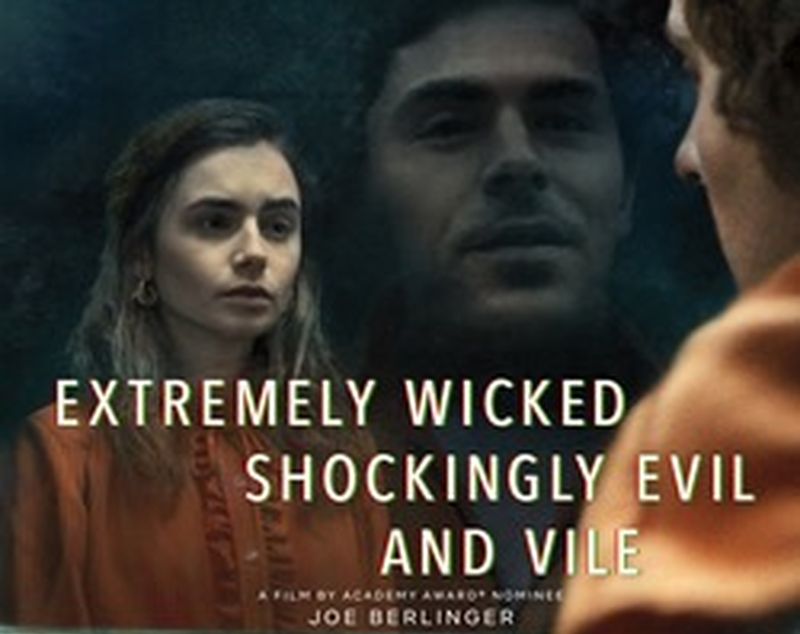
Hetfield played Officer Bob Hayward in “Extremely Wicked, Shockingly Evil and Vile,” bringing intensity to the 2019 Ted Bundy film. His natural screen presence surprised critics and expanded his artistic horizons.
“James Hetfield, to his credit, absolutely nailed the part,” praised co-star Zac Efron. “It’s like he’s been acting his own life.” Character work adds depth that enhances rather than distracts from his musical identity.
9. Philanthropic Foundation Work

Metallica’s All Within My Hands Foundation combats hunger and supports workforce education through sustainable community programs. Hetfield actively promotes positive change that extends far beyond entertainment.
His compassion contrasts beautifully with his aggressive stage persona. The foundation proves that the heaviest music can carry the lightest hearts.
Castor Hetfield drums for Bastardane, forging his own musical path without riding his father’s coattails. Their 2022 album “It’s About Time” demonstrates genuine talent rather than inherited fame.
Hetfield encourages independence over nepotism. His son’s success validates both good parenting and authentic artistry over industry connections.
8. Diverse Musical Influences

Black Sabbath, Motörhead, and Led Zeppelin shaped his heaviness, but Aerosmith’s melody and Queen’s theatrics added unexpected dimensions. Steven Tyler’s vocal approach directly influenced Hetfield’s singing evolution.
His influences span genres because great artists steal from everywhere. Metallica’s sound succeeds by synthesizing rather than copying their heroes.
7. Football Dreams Derailed

Hetfield nearly chose football over music until coaches demanded he cut his hair. His refusal to conform accidentally saved metal from losing one of its greatest voices.
Sometimes rebellion serves art better than compromise serves conformity. That hair-versus-helmet decision changed music history in ways no one could predict.
6. Signature Guitar Legacy
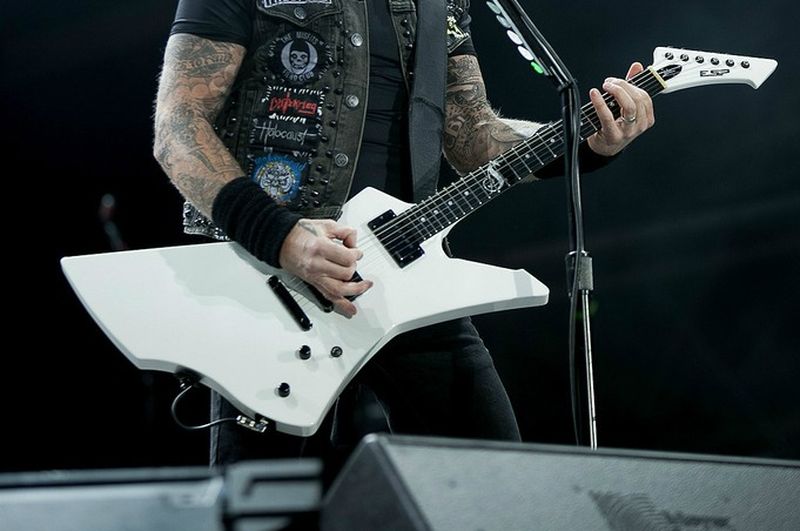
The ESP Hetfield Iron Cross features mahogany construction, EMG pickups, and distinctive cross inlays that define modern metal guitar design. This $4,999 instrument embodies 40+ years of sonic evolution.
His signature models influence countless metal guitarists while maintaining accessibility across price points. Great tone requires both quality components and artistic vision.
5. Documentary Narration Work

Hetfield narrated “Addicted to Porn: Chasing the Cardboard Butterfly,” lending his distinctive voice to serious social commentary. The controversial documentary showcases his willingness to address difficult topics beyond music.
His narration brings gravitas to important issues while expanding his artistic range. Sometimes the heaviest voices carry the most necessary messages about society’s challenges.
4. Tattoo Timeline Story
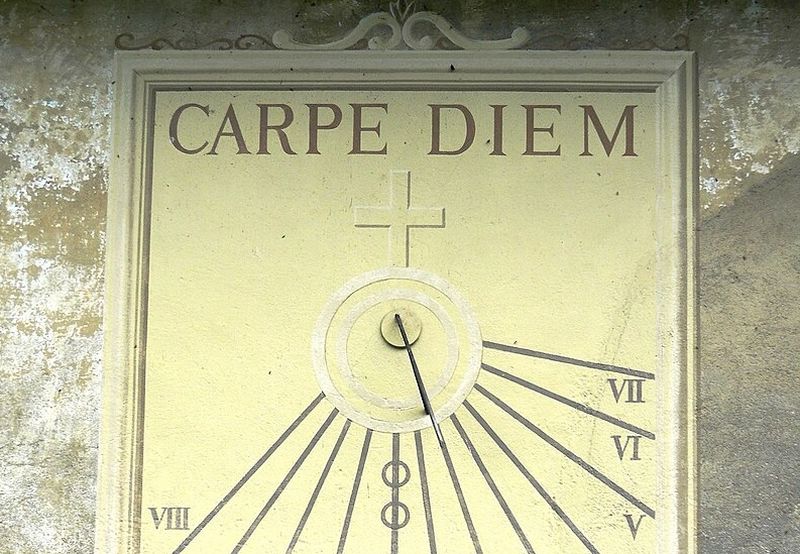
Flames, playing cards (1963 birth year), and “Carpe Diem” mark key life moments across his skin. Each piece chronicles personal evolution from trauma to triumph.
His body becomes a living autobiography where scars and ink tell stories that words cannot capture. The best tattoos document journeys rather than destinations.
3. Southern Rock Appreciation

“Sweet Home Alabama” was Hetfield’s first record purchase, and he considers “Freebird” the greatest song ever written. Metallica’s cover of “Tuesday’s Gone” honors these Southern rock influences.
His musical tastes extend far beyond metal boundaries. Great artists appreciate quality regardless of genre – and Lynyrd Skynyrd wrote songs that transcend classification.
2. Political Neutrality Stance

Hetfield avoids celebrity political soapboxing, believing music should unite rather than divide audiences. His focus remains on shared human experiences rather than partisan positions…. This neutrality preserves Metallica’s universal appeal while respecting fans’ intelligence. Sometimes the most powerful political statement is refusing to make political statements.
1. Big Game Hunting Controvers

His NRA membership and hunting expeditions divide fans between admiration and outrage. Hetfield advocates ethical practices while narrating hunting documentaries for the History Channel.
Personal choices spark inevitable debate, but authenticity matters more than universal approval. His honesty about controversial hobbies beats sanitized celebrity personas.




